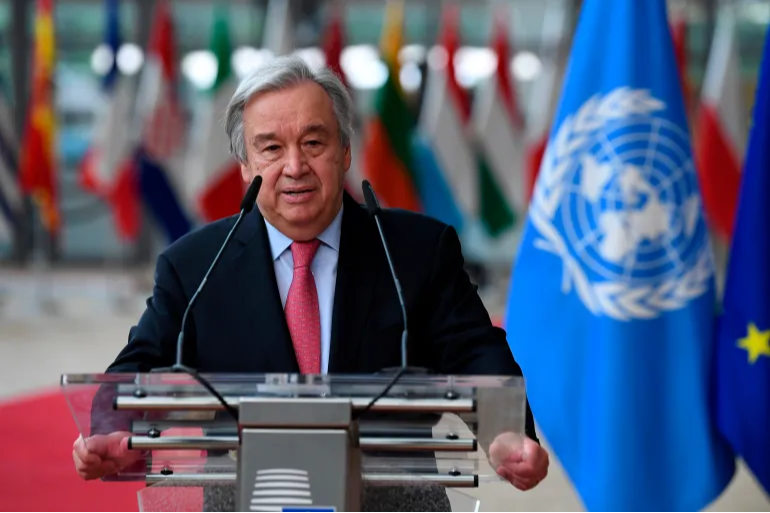
United Nations, August 16 (RHC)-- United Nations Secretary-General Antonio Guterres has called for humanitarian pauses in the war in Gaza in order to conduct a polio vaccine campaign after the virus was detected in the besieged territory.
“It is impossible to conduct a polio vaccination campaign with war raging all over,” he told reporters at the UN headquarters in New York on Friday.
Guterres appealed for assurances of humanitarian pauses to be provided immediately from the warring parties as he warned that preventing and containing the spread of polio in Gaza would take a massive coordinated and urgent effort.
“Let’s be clear: The ultimate vaccine for polio is peace and an immediate humanitarian ceasefire,” Guterres said. “But in any case, a polio pause is a must.” The UN chief added that the organisation is poised to launch a polio vaccine campaign in Gaza for children under the age of 10, but he said the “challenges are grave”.
At least 95 percent vaccination coverage will be needed during each of the two rounds of the campaign to prevent polio’s spread and reduce its emergence, given the devastation in Gaza, Guterres said.
He noted that a successful campaign would require the facilitation of transport for vaccines and refrigeration equipment at every step, the entry of polio experts into Gaza, as well as reliable internet and phone services.
According to the UN agency for children (UNICEF), the vaccination will be administered in two rounds and is expected to be launched at the end of August and September this year across the Gaza Strip.
Hamas has said it supports the UN request for a humanitarian pause to vaccinate children against polio. “Hamas also demands the delivery of medicine and food to more than two million Palestinians trapped in the Gaza Strip,” Izzat al-Rishq, a member of the group’s political bureau, said in a statement.
In July, Gaza’s Health Ministry declared a polio epidemic in Gaza and blamed Israel’s military offensive in the enclave as the reason behind the spread of the deadly virus. The Israeli military said in July it had already begun vaccinating its soldiers against the disease.
Polio has been detected in wastewater in Gaza’s Deir el-Balah and Khan Younis governorates, Dr Hamid Jafari, a World Health Organization (WHO) polio specialist, said earlier this month.
Without proper health services, the population of Gaza is particularly vulnerable to outbreaks of disease, public health officials and aid groups have said. Israel has restricted humanitarian groups’ access to Gaza, and Israeli forces have bombed aid convoys, killing dozens of aid workers.
Moreover, the Israeli offensive has put most of Gaza’s hospitals out of commission and the repeated displacement of Palestinians, who continue to face evacuation orders by the Israeli military, makes it difficult to locate and reach unvaccinated children.
“Normally, if you have a case of polio, you’re going to isolate them, you’re going to make sure that they use a bathroom that nobody else uses, make sure that they’re not in close proximity to other people, [but] that’s impossible,” she said.
“You have everybody clustering in refugee camps at the moment without vaccines for at least the past nine months, including children who would otherwise have been vaccinated for polio and adults who, in the setting of an outbreak, should receive a booster, including healthcare workers,” she added.
Poliomyelitis, which is spread mainly through the fecal-oral route, is a highly infectious virus that can invade the nervous system and cause paralysis.
Children under the age of five, are most at risk from the viral disease, and especially infants under two, since normal vaccination campaigns have been disrupted by 10 months of conflict.
“We need a ceasefire, even a temporary ceasefire to successfully undertake these campaigns,” Hanan Balkhy, regional WHO director, told reporters earlier this month.
“Otherwise, we risk the virus spreading further, including across borders,” he added.

